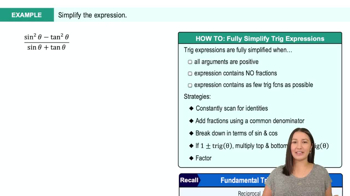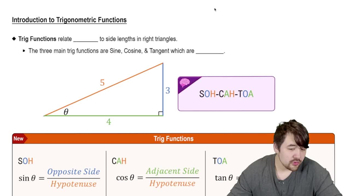Finding Limits
In Exercises 25–28, find the limit of g(x) as x approaches the indicated value.
5 ―x²
lim ------------- = 0
x → ―2 (√g(x))
 Verified step by step guidance
Verified step by step guidance Verified video answer for a similar problem:
Verified video answer for a similar problem:



 5:21m
5:21mMaster Finding Limits by Direct Substitution with a bite sized video explanation from Patrick
Start learning